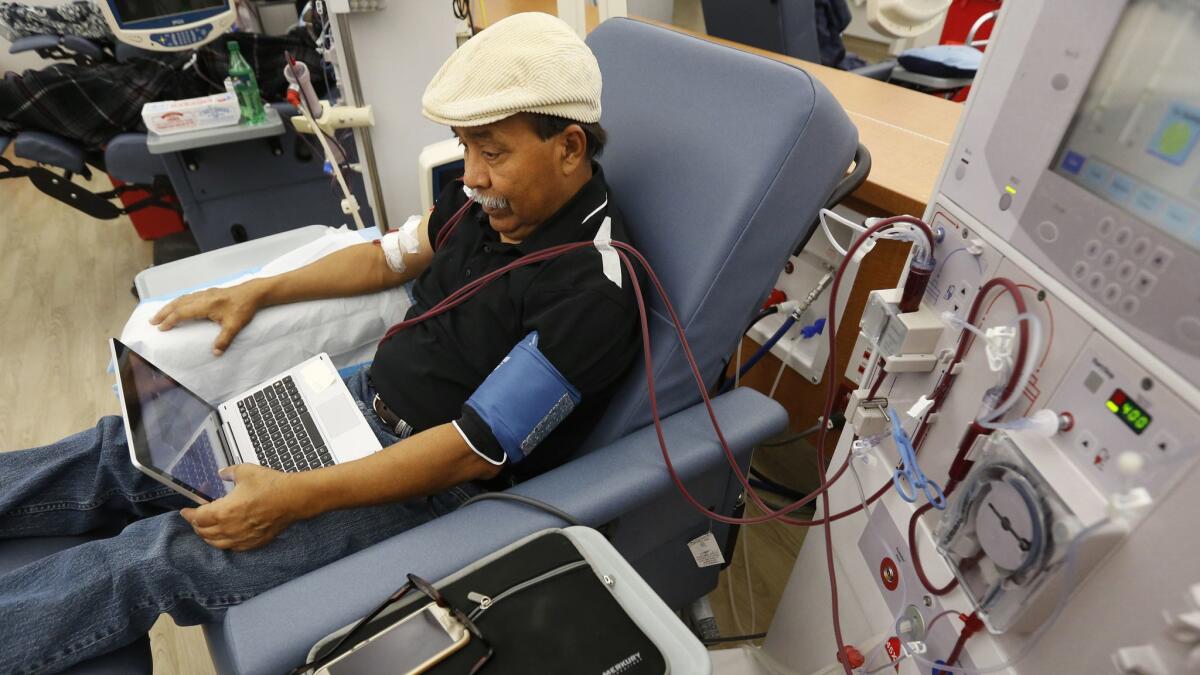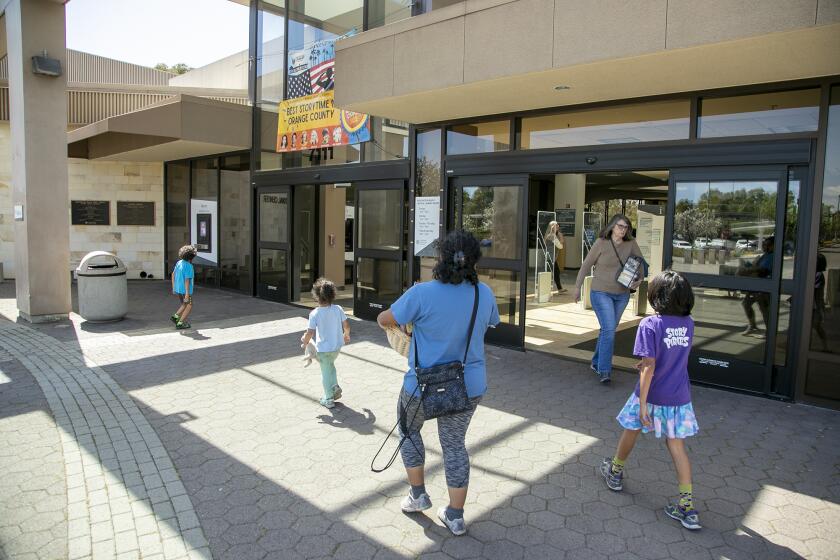Commentary: California Proposition 8 could reduce access to dialysis clinics

- Share via
This November, California’s voters will have before them a proposition that at face value may seem worthy of their support. The only problem is that this proposition will negatively impact the health and wellbeing of thousands of dialysis patients across California, including myself.
Proposition 8 would set artificially low limits on what insurance companies are required to pay for dialysis patient care, neglecting to account for the true costs of providing treatment for kidney failure. Backed by Service Employees International Union-United Healthcare Workers West (UHW), the proposition is an attempt to make an end run around the dialysis clinic employees who have so far been unwilling to join the union.
Under Prop. 8, costs associated with providing necessary staffing needs and services, such as kidney disease education for patients, nurse clinical coordinators and physician medical directors, would not be reimbursed to dialysis clinics by insurance companies. The Berkeley Research Group estimated that Proposition 8 only allows clinics to recover 69% of their total costs under Proposition 8. The same study also found that if Proposition 8 takes effect, it would force 83% of dialysis clinics in California to operate in the red.
The result of clinics operating at a financial loss is obvious — many clinics, will ultimately be forced to close their doors. These are clinics that are relied upon daily by thousands of patients — a literal lifeline. These closures will create a fracture in the availability of treatment for patients, cutting off access to quality care at dialysis treatment facilities for thousands across California.
If clinic closures become a reality — and they will if Proposition 8 passes this November — patients seeking dialysis treatment will be forced to travel to the closest available treatment facility, which could be any number of miles away. This will result in missed treatments for many, and others will have to rely upon already over-burdened emergency rooms for treatment at a much higher cost to the health care system. That is not a way to live your life, and in no way matches the quality care received in clinics dedicated to dialysis treatment.
The clinics whose existence Proposition 8 threatens are extremely necessary. The number of people suffering from kidney failure is growing. Diabetes and high blood pressure, two of the leading causes of kidney failure, affect millions of people in California, with few affected fully understanding kidney failure as a possible outcome. We need more dialysis clinics, not fewer.
Ultimately, this misguided and flawed proposition is a clear-cut power-play and an abuse of our state’s initiative system. The lives of dialysis patients should not be placed in jeopardy as a means to end. Proposition 8 is an attempt to manipulate the system using my life and the lives of thousands of our state’s most vulnerable patients as political pawns.
Guy Churchouse, a dialyses patient, lives in Huntington Beach.
All the latest on Orange County from Orange County.
Get our free TimesOC newsletter.
You may occasionally receive promotional content from the Daily Pilot.



